The Magic Flute has been a bewilderment from its beginnings. Composed in 1791, Mozart’s last year, it was performed over 100 times in its first twelve months. An unequivocal winning combination of melody and comic humour, it was appreciated as an exotic, if somewhat elusive, fairy tale by its earliest audiences. But by 1793 the paranoid Hapsburg ruling classes of Austria were branding it a Masonic-inspired attempt to introduce the regicidal excesses of the Parisian Terror on to the streets of Vienna.
Certainly, the plot has inconsistencies. The Queen of the Night, the wronged mother in Act I, becomes a vengeful despot in Act II. In direct contraflow, her daughter’s heartless captor, Sarastro, transforms into the beneficent priestly guide to truth and enlightenment, conversions so striking and sudden as to raise questions about just what was in one’s interval drink. Director James Brining, normally found in charge of productions at Leeds Playhouse, is taking on an opera for the first time and has adopted a pragmatic approach:
“There’s a story to tell and the idea is to make it accessible. I was born and brought up in Leeds and it’s always been an ambition to direct a staging like this at Leeds’ Grandest Theatre. It’s wonderfully resourced for such labour-intensive theatre as opera. With a Chinese Tamino and South African Pamina, it was easy to make it inclusive and I’m glad the sense of fun came over. I was not expecting quite so many curtain calls.”
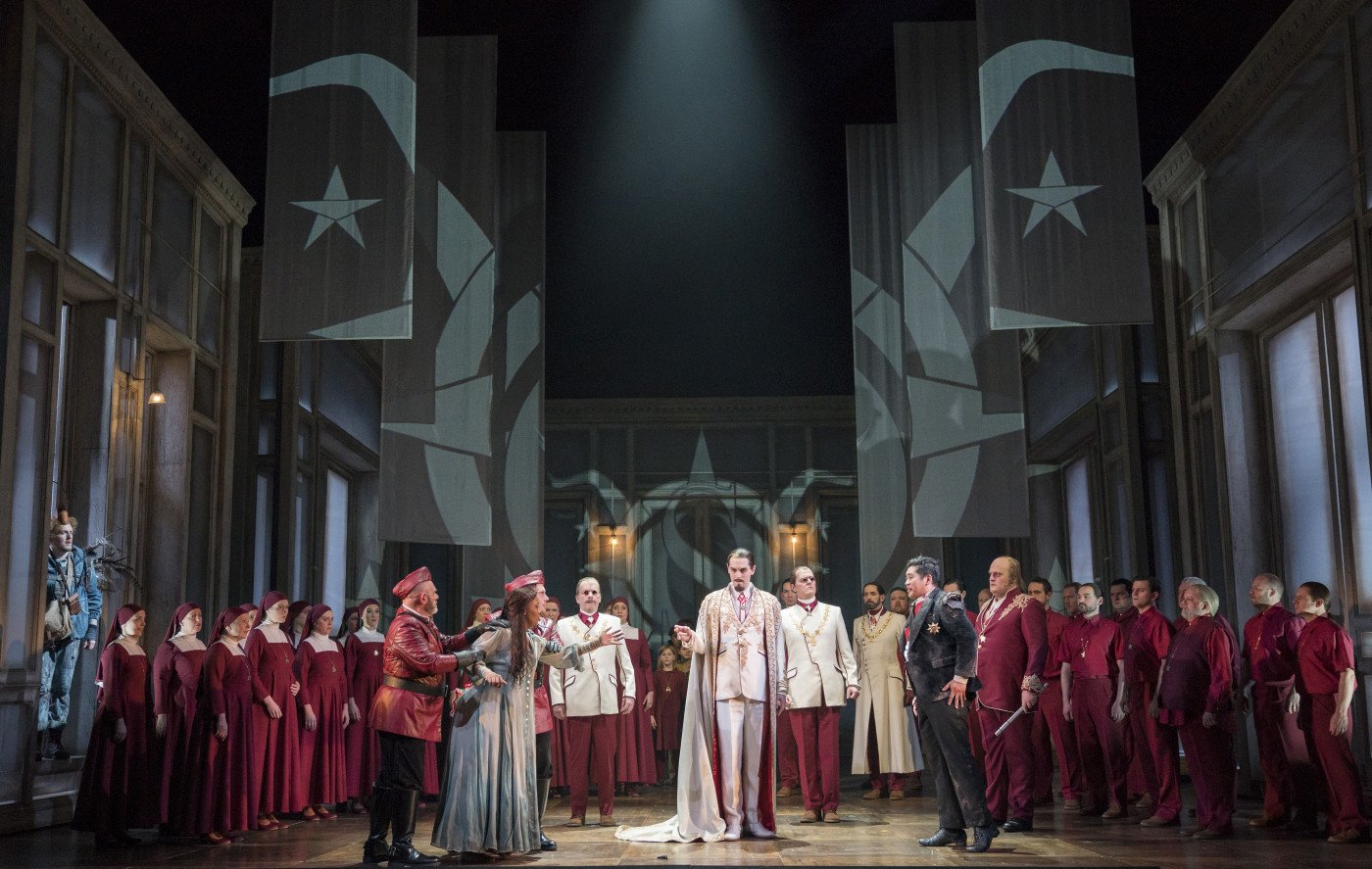
The story unfolds seamlessly in the rooms and corridors of set designer Colin Richmond’s apparently endless chateau, the dream of the young daughter of parents at odds over her custody.

Opera North debutant Kang Wang, as Tamino, impresses immediately with the contrasting fevered dread and love-struck lyricism of his opening arias, delivered with dramatic authority and musicality. As a Mozartian hero, his portrayal carries a special charge throughout.
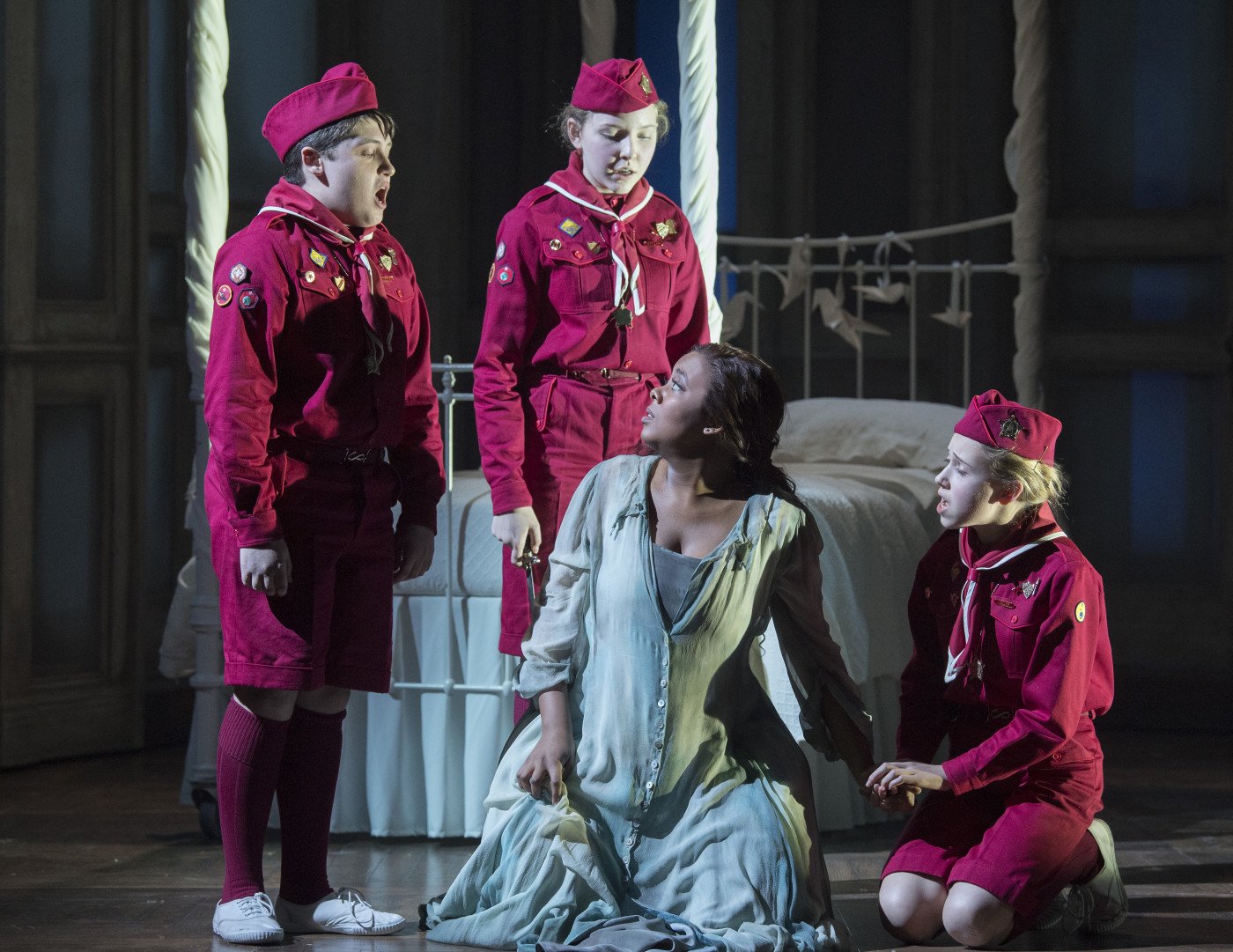
The Pamina of South African-born Vuvu Mpofu is elegantly fresh-toned and straight-forwardly untroubled in delivery, a memorable first appearance with Opera North.
The Sarastro of Act II, saintly goodness in human form, shows just how awkward and unconvincing such a role is for a mere mortal. John Savournin intelligently prepares and reaches his notorious low notes, without being particularly resonant, but, as a part, it has always struck me as being almost impossible to imbue with any humanity and dramatic life.
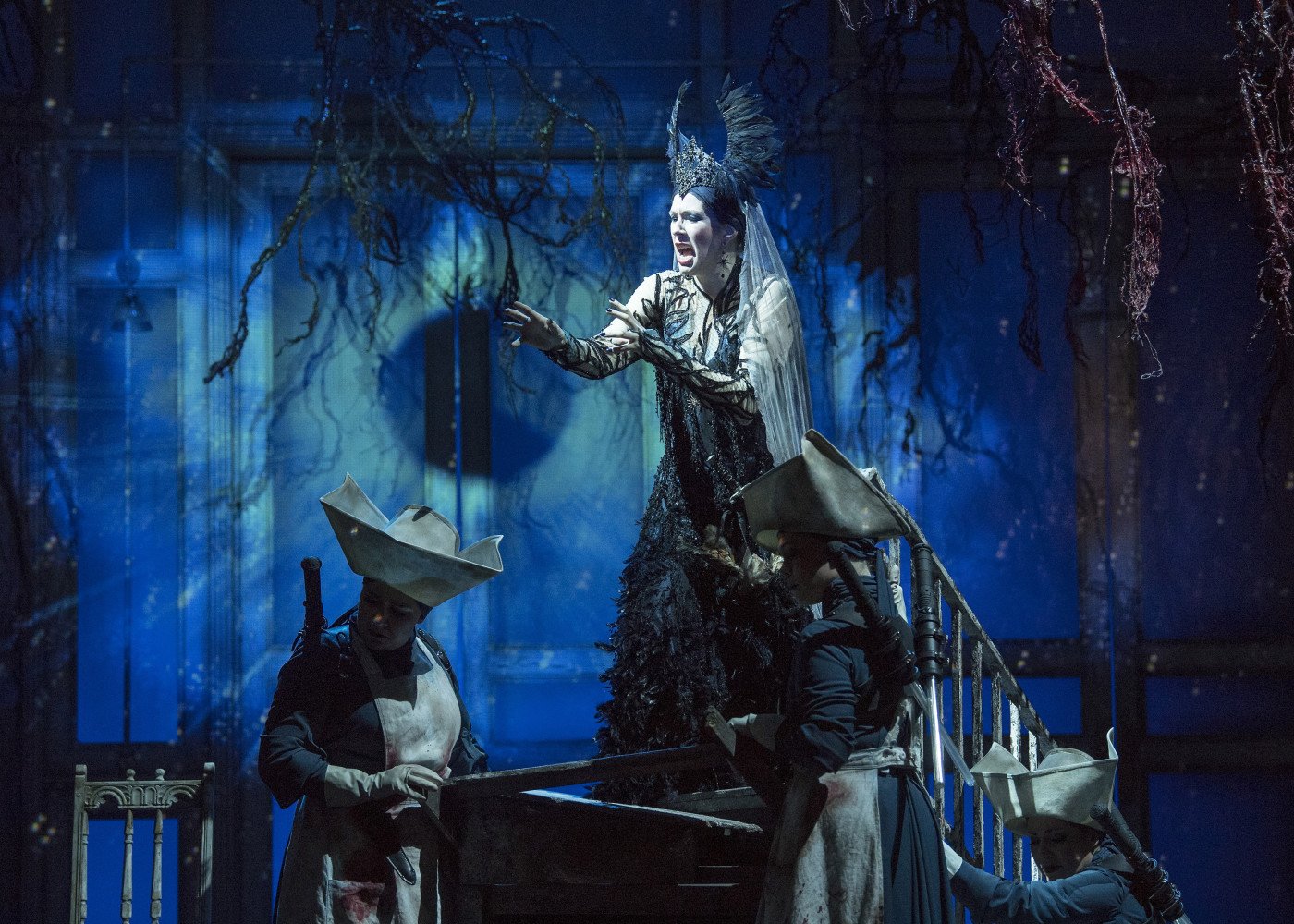
In contrast, every performance of this work harbours considerable anticipation for The Queen Of The Night’s aria, that needs extraordinary vocal gifts. Here, feisty Samantha Hay brings it off as a true theatrical tour-de-force, with unblemished head voice intonation, clear diction and skilful, expressive acting all in one. Fabulous.
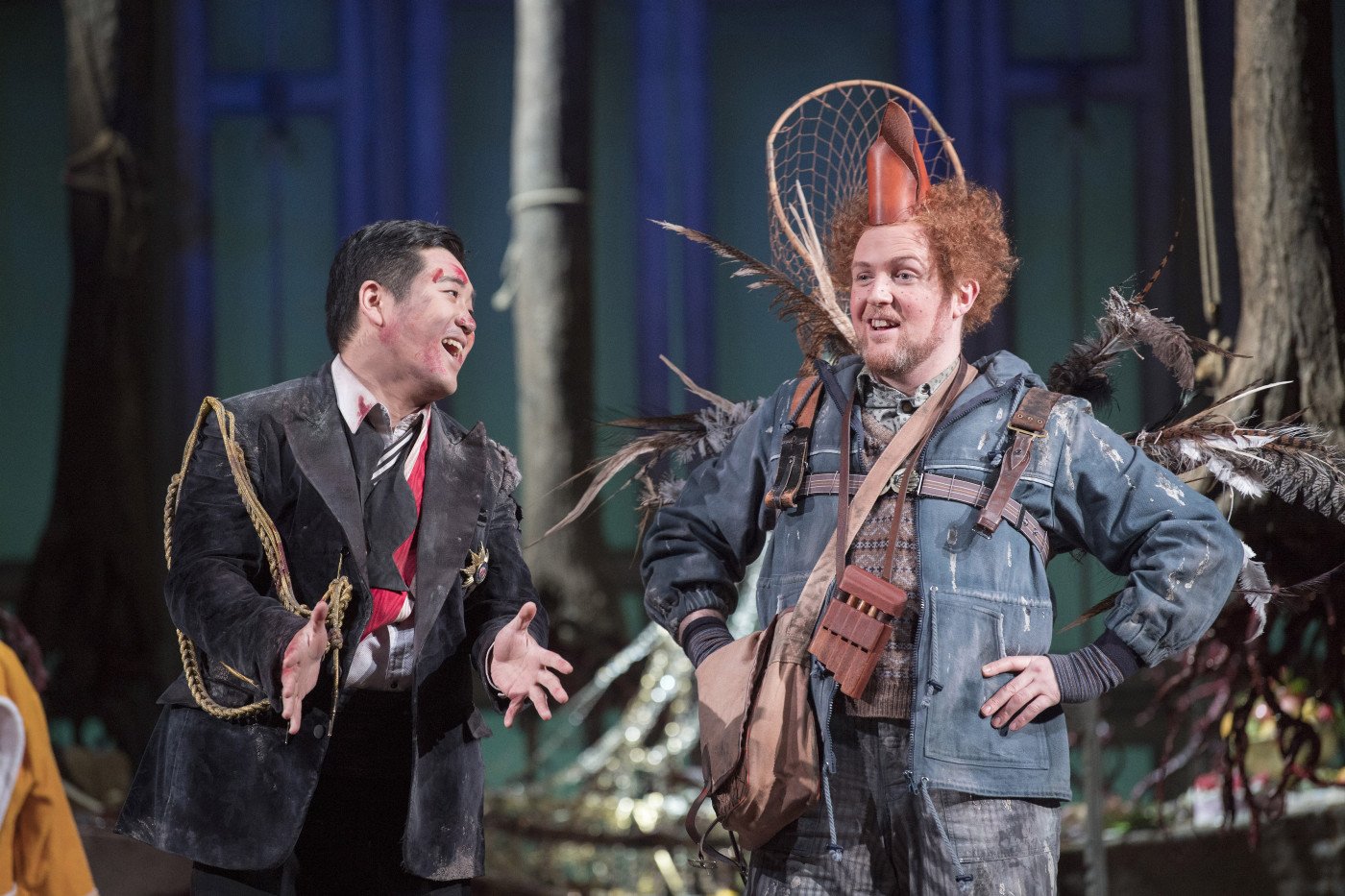
Star of the show goes to the Papageno of Gavan Ring. His comic portrayal oscillates between infectious good cheer and the despondency of someone returning from Glastonbury without realising the latest Festival got cancelled. Vocally idiomatic and perfectly nuanced, as an audience we are with him through every twist and turn of his changing fortunes.
Conductor Robert Howarth is painstakingly sensitive throughout, Opera North’s orchestra playing with intimacy and impeccable grooming, giving each vocal line all the expressive freedom it needs.
With fifteen minutes of dialogue excised from Mozart’s Singspiel format, the audience gets a lot more of what it came to hear, an unmissable production sung in English.
Check out the Company’s bite-sized Mini Magic Flute for four to seven year olds, packing all the fun, fantasy and enchanting music into just half-an-hour.
Upcoming performances include:
Fri 01 Mar, 7pm
Leeds Grand Theatre then touring Salford, Newcastle and Nottingham.
Images courtesy of Opera North.
Filed under: Music, Theatre & Dance
Tagged with: good opera, Mozart, music review, musical theatre, opera north, operanorth, Orchestra of Opera North, theatre, theatre review
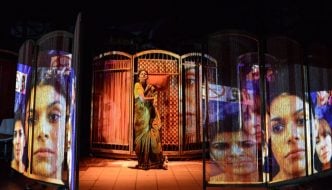
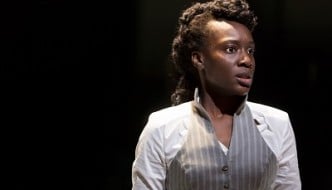
Comments